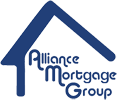Reverse Mortgage Loan Pros and Cons

A reverse mortgage loan can be an excellent financial planning tool. However, whether or not this is the best option for you depends on your specific circumstances. To determine if a reverse mortgage loan is the most beneficial choice for you, it is critical to know—and weigh—both reverse mortgage loan pros and cons.
The Pros
- A Source of Income
A reverse mortgage loan is a way to increase your cash flow. You can use the income (in the form of a lump sum, monthly payments or a line of credit from the lender) any way you wish—whether to pay for living expenses or eliminate debt. - No Loan Payments
While you are alive and living on the property, no payments are required on the loan. (You must pay property tax and insurance on the home.) - A Non-Recourse Loan
The repayment of the reverse mortgage loan will not become the personal responsibility of your heirs. - Tax Benefits
Any money you receive from a reverse mortgage loan is tax free. (Consult your tax advisor for details.) - The Balance Owed Will Never Be Greater than the Value of The Property
Neither you nor your heirs will ever be responsible if the amount of the loan balance exceeds the property value. - Extended Independence
Because it allows you to remain independent and in your home longer. a reverse mortgage loan is a particularly good choice—even if you require in-home care. - No Fixed Term
With reverse mortgage loans, the loan only becomes due when the loan holder dies or leaves the property. - No Conflict with Social Security or Medicare benefits
The Cons
- Age Minimum
To qualify for a reverse mortgage loan, you have to be 62 years old. - Residency Requirement
Unlike traditional mortgages, a reverse mortgage loan requires that the home be your primary residence. - Outliving Equity
By either retiring too soon or living long enough, you could use up your equity and become unable to pay for insurance and property taxes. - Fees and Costs
Like traditional mortgages, reverse mortgage loans require ongoing payment of property taxes, insurance and FHA insurance premiums. However, other fees associated with reverse mortgage loans can be higher. Loan origination fees may also be higher than those for traditional mortgage loans. In addition to an upfront mortgage premium (2%), there is also an annual mortgage premium of 0.5%. - Lower Loan-to-Value Ratios
With a reverse mortgage loan, the loan-to-value ratio is only 50% to 65% (vs. up to 100% with a traditional mortgage). - Non-Deductible Interest
Interest on a reverse mortgage loan may not be deducted until the loan is paid in full. (Consult your tax advisor for details.) - Variable Interest Rates
Many reverse mortgage loans are based on variable rates, which can be higher than traditional mortgage loans and fluctuate. - Impact on the Remaining Estate
Because a reverse mortgage loan draws from your home equity, over time there will be less to pass on to your heirs. - Time Commitment
Unless you plan on staying in the property long enough to cover closing costs, a reverse mortgage loan may not be the best option. - Title Reversion
Upon the death of the loan holder, the title of the property could revert to the lender and be sold—unless your heirs choose to pay off the loan. - Counseling Requirement
To apply for a reverse mortgage loan, you are required to meet (by phone or in person) with an approved FHA counselor. - Potential Impact on Medicaid Benefits
Have questions about whether a reverse mortgage is right for you? Call Jeff Beattie today at




